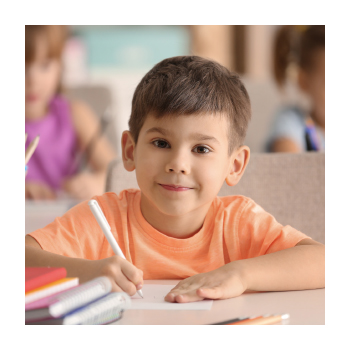


Sign-up for {N}power to get exclusive discounts, newsletters, members-only features, and more!
 Denver - Design District - Alameda and Broadway
Denver - Design District - Alameda and Broadway
368 S Broadway
Denver, CO 80209
United States
 Preferred Store:
Select a Store
Preferred Store:
Select a Store

According to the CDC, approximately one in 10 children between 6 and 12 are diagnosed with attention deficit hyperactivity disorder (ADHD).1 ADHD makes it challenging for children to stay focused, and stimulant drugs such as methylphenidate hydrochloride (MPH) are often prescribed as the first line of treatment. These stimulant drugs have numerous side effects, leading researchers to explore other alternatives to help children cope with ADHD.
A recent study2 compared the effectiveness of Pycnogenol, a patented extract of French maritime bark, to the stimulant drug MPH. Pycnogenol was chosen due to its well-known anti-inflammatory and antioxidant effects, which may play a role in the pathophysiology of ADHD.
 The study included 88 children, between 6 and 12 years old, who had received an ADHD diagnosis. The children were randomized to take either MPH or Pycnogenol (20-40 mg), with the dose adjusted by weight, for 10 weeks. During the 10-week period, the children’s parents and teachers were asked to fill out several questionnaires to assess behavioral, emotional, and physical changes at baseline, five weeks, and 10 weeks during the study. Both parents and teachers were blinded to the type of treatment the children received.
The study included 88 children, between 6 and 12 years old, who had received an ADHD diagnosis. The children were randomized to take either MPH or Pycnogenol (20-40 mg), with the dose adjusted by weight, for 10 weeks. During the 10-week period, the children’s parents and teachers were asked to fill out several questionnaires to assess behavioral, emotional, and physical changes at baseline, five weeks, and 10 weeks during the study. Both parents and teachers were blinded to the type of treatment the children received.
At five weeks into the study, the children taking MPH saw significant improvements for total ADHD and inattention scores. At 10 weeks, children taking either MPH or Pycnogenol saw significant improvements in overall ADHD rating scale, decreases in hyperactivity/impulsivity, and a decrease in inattention.
While the researchers noted Pycnogenol acted slower than MPH, both were equally matched for inattention at 10 weeks. Additionally, five times as many adverse effects were reported with MPH. The researchers concluded that Pycnogenol may be a good alternative for people who desire minimal side effects and are willing to wait a few more weeks for the treatment to work.
A 2020 study3 revealed that supplementing with spirulina for two months improved allergic rhinitis symptoms as well as quality of life better than the pharmaceutical drug, cetirizine.
 Spirulina is a type of seaweed that’s also a valuable nutritional supplement that contains remarkably high levels of essential fatty acids, essential amino acids, vitamins, and minerals. In addition to providing an abundance of nutrition, it can also offer a helping hand to balance the immune system’s reaction to allergens.
Spirulina is a type of seaweed that’s also a valuable nutritional supplement that contains remarkably high levels of essential fatty acids, essential amino acids, vitamins, and minerals. In addition to providing an abundance of nutrition, it can also offer a helping hand to balance the immune system’s reaction to allergens.
In the study, subjects either received a daily dose of 2 grams of spirulina or 10 milligrams of cetirizine for two months. Before the treatment was initiated, there was no difference in symptoms between the two groups. After two months of treatment, improvement of symptoms was significantly greater in the spirulina group compared to the cetirizine group, including the prevalence of rhinorrhea (runny nose), nasal congestion or obstruction, and loss of smell. Sleep conditions, working life, and social activity also improved.
The researchers then went on to measure inflammatory markers and found that levels were significantly lower in the spirulina group compared to the cetirizine group. The authors noted that relief of allergy symptoms may be due to the anti-inflammatory effects of spirulina.
As seasonal allergy suffering is on the rise, including fall allergies, spirulina could be a promising solution that also offers a nutrition-packed punch.



Sign-up for {N}power to get exclusive discounts, newsletters, members-only features, and more!
